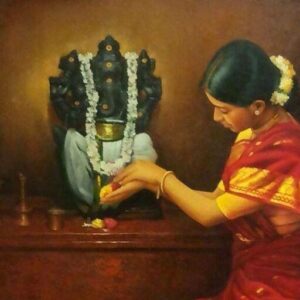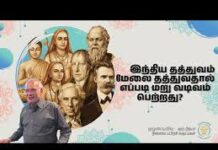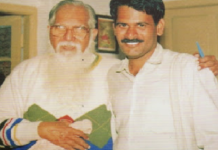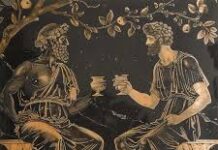Dear Je,
I have a small doubt. You might find it amusing, but for me, it’s a life crisis. I’m a 31-year-old government employee. My father has embraced the Veerashaiva Vrat, and I followed suit by taking Diksha from him eight years ago. I only visit Shaivite temples and don’t worship any other deities.
Recently, while on a trip with friends, I chose to stay in the car instead of visiting the Vishnu temple. A senior friend of mine, who is a Brahmin, scolded me harshly for this. He warned me that I would incur sin and this would affect seven generations after me. He said that every Hindu god is there for all Hindus. He also mentioned that Hinduism is suffering due to such divisions and that Hindus should overlook these differences and unite. He insisted that ‘Hindu’ should be the primary identity for all Hindus and that all other identities should disappear.
I recall reading in your writings about a friend who didn’t worship another deity. You made fun of him but didn’t say that it was a big issue. Am I making a serious mistake? I can’t discuss this with my father.
S.
Dear S,
Hinduism, as we know it today, is a vast collection of wisdom. It is a complex web of diverse, often conflicting, strands of wisdom that have evolved through debates with one another. Some of these strands have branched out from other ones. Without the ability to branch out, engage in fiery debates, and reject each other, Hinduism would become a rigid system, a mere authority.
If the life function of a system is disrupted, the system will soon perish. Some religions are monocentric, rigid structures with top-down control, and this has worked out for them. But few individuals are attempting to mould Hinduism in a similar manner, aiming to establish a structure of authority. This could lead to the demise of what has grown as Hinduism, which has been a source of liberation (Mukti) for crores of people.
Hinduism encompasses various paths, including Bhāvabhakti. One other path involves engaging in ritualistic worship and abiding religious laws (Aachara). More often than not, these two paths are intertwined with each other. Bhāvabhakti is the liberation and fulfilment that comes from accepting, worshipping, and loving a single deity with full attention. Poojas and fasts are intended to make this Bhāva – emotional acceptance – an everyday reality. Rituals and laws also serve this purpose.
The goal of this path is to continuously refine that emotional acceptance. If one chooses to follow it, they must do so wholeheartedly. In contrast, Advaita lacks such emotional acceptance, focusing instead on knowledge, clarification, and introspection through meditation. Some traditions may allow worship of all deities, but ways of one tradition may not be suitable for another.
Follow your own path. Once your devotion transforms into an all-consuming passion, you find Mukti when you completely surrender to Shiva. Only if this devotion leads to blind and irrational hatred towards Vishnu do you veer towards darkness. Looking back, many of our forefathers have dedicated their worship (Upasana) to a single God.
Those who identify as Hindus should strive to completely separate Hindutva politics from both Hinduism and Hindu culture, as the former has no ties with the latter. Their claim to protect Hindu religion and culture is completely false. We cast our votes for them purely on the basis of their commitments to administer India and manage our tax money. Let them focus only on these issues.
If we relinquish the label ‘Hindu’ to them, then all the disorder and corruption they create after gaining political control using the tag will be attributed to Hinduism and Hindu culture. Hinduism has already been marred by their ignorance, aggression and corruption. It is indeed their actions that pose the most significant threat to Hinduism today.
Let Hinduism be guided by the wise and governed by its books of wisdom. It has grown through its tendency to branch out, its openness to all questions and its resolve to retain unique identities. May it continue to do so. It should not be turned into a singular machinery for political gains.
Being a Hindu does not mean being a vote bank for certain political organisations. Moreover, we have nothing to gain by giving up on our Mukti.
Jeyamohan
Translated from Tamil by Swetha Mayuri













